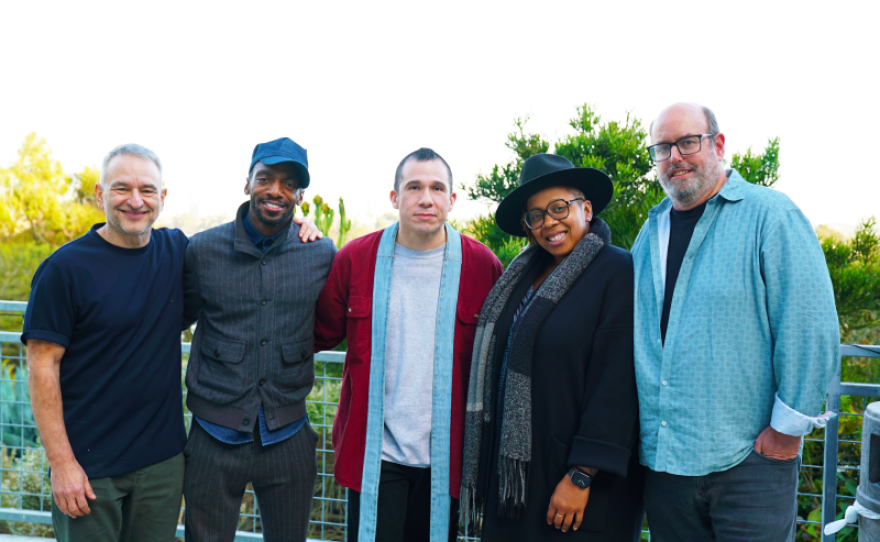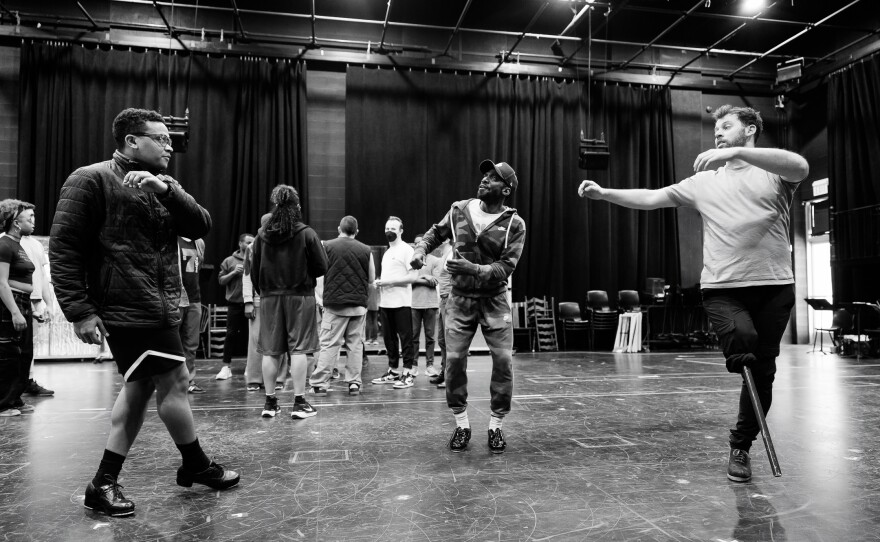Wednesday night, the musical "3 Summers of Lincoln" had its world premiere at the La Jolla Playhouse. Co-lyricist and co-choreographer Daniel J. Watts provided insights into the creative process.
The musical takes place during the last three summers of President Abraham Lincoln's life. Over the course of these three summers, Lincoln faces pressure to end the Civil War while also working to abolish slavery. He develops a sometimes combative friendship with abolitionist Frederick Douglass, who urges the president to act more swiftly.
The music and the lyrics define the dynamic between the two friendly adversaries.
"We said Lincoln is like potential energy and Frederick is kinetic energy," Watts said. "And what happens when an immovable object comes in contact with an unstoppable force? So you have a person who doesn't really move. So his sound should be a little bit more jagged or kind of staccato at times because he's trying to figure things out, whereas you have someone else singing in a much freer way — that's Frederick. So how do we activate things so that if you're just listening to it, you can tell the difference between these two individuals."
The Abraham Lincoln Presidential Library and Museum states, "Lincoln is the most written-about figure in American history, with more than 18,000 books devoted to him." There have also been hundreds of movies and TV shows about the 16th president. Douglass, however, has been written about far less (though he authored his own autobiography) and has yet to be the subject of a major motion picture. The PBS documentary "Becoming Frederick Douglass" describes him as "the most photographed American of the 19th century." Douglass deliberately placed himself in front of the camera to present images of Black Americans that countered racist stereotypes.
"Frederick Douglass is probably the biggest personification or the epitome of the American dream," Watts said. "The true pull-yourself-up-by-your-bootstraps (story). This man was born a slave. He was not allowed to read and write, and then he became an international orator. He's one of the defining factors that allowed the Emancipation Proclamation to happen by pressuring Abraham Lincoln to act. And I think that was important. He didn't have luxuries afforded to him. He was a Black man in America at a time when he was considered three-fifths of a man to becoming this person that we're still talking about to this day."
Watts, who grew up in North Carolina, took a Civil War elective with a history teacher who had the Confederate flag on the wall. It's a history, he said, that feels more present to him than it might to people living on the West Coast.
"We're still trying to get these monuments down," Watts added. "It's a very activated, current history that has been highlighted and exhausted by the current administration. We're telling a story about a time when slavery was law and there was a secession in order to keep slavery as the law of the land. And there's currently an administration that is trying to go back to those times. So this play — this musical — for a lot of us isn't just a musical. It's still current day real life. And I actually think it's more interesting to try (this play) out somewhere where that history doesn't exist."

To write the lyrics with Joe DiPietro, Watts conducted research and discovered a wealth of material to draw from.
"We realized really early on that all of the characters, for the most part, are writers," Watts explained. "Abraham Lincoln is a writer. Frederick Douglass is a writer. Elizabeth Keckley, who was a seamstress and friend to Lincoln and friend to Mary Todd, wrote her own autobiography. William Slade, (Lincoln's) valet, wrote his. So we have their words to kind of pull from."
The production design also embraces the idea that these were men of words — the set incorporates typeface blocks as visual elements. The design highlights communication, whether through the words of these figures or the power of the press to inform the public. Watts also found a creative way to depict another form of communication from that era.

"There's a telegraph," Watts said. "We decided to put the telegraph as a tap dancer — two tap dancers, actually — represented the telegraph over the course of the war, because the telegraph was a way and a means for communication. It was a huge. Lincoln used it religiously for war reports, to send messages, to get the casualty reports, all this stuff. So I thought this would be really interesting to use tap dance and just an opportunity to play."
"3 Summers of Lincoln" has been extended through March 30 at the La Jolla Playhouse's Mandell Weiss Theatre, but tickets are already limited.







